[ad_1]
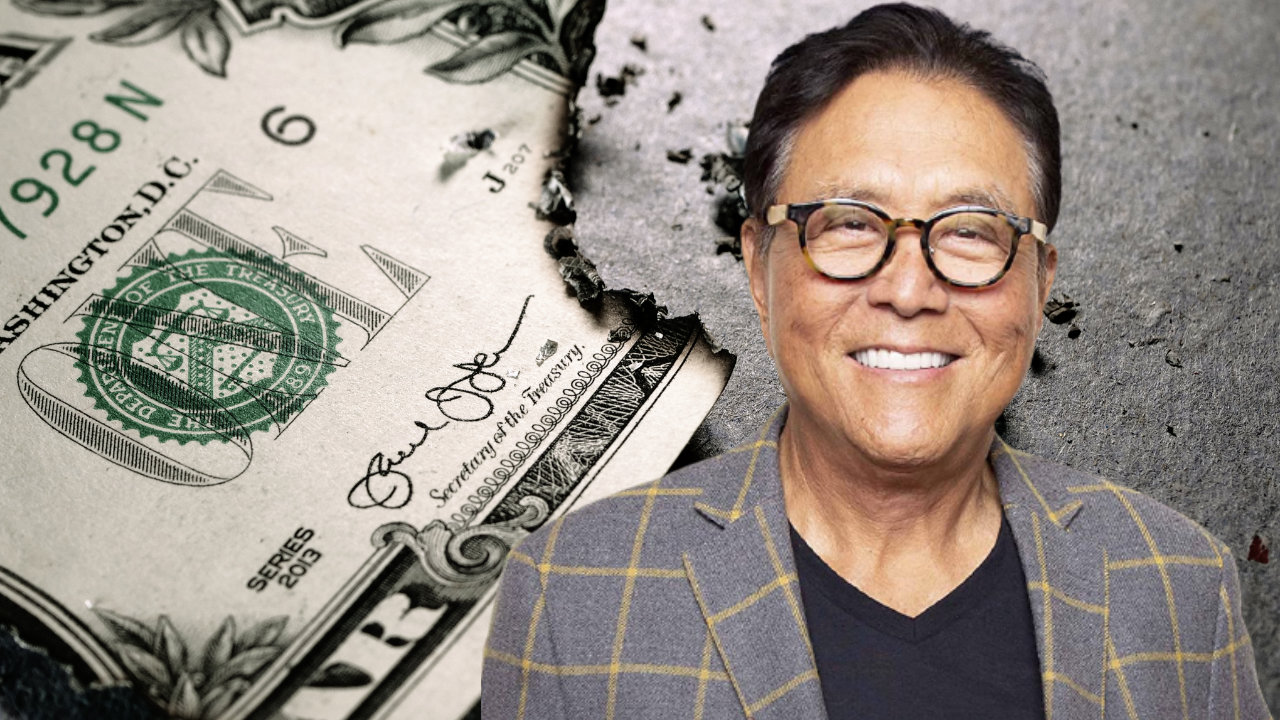
The famous author of the best-selling book Rich Dad Poor Dad, Robert Kiyosaki, has predicted the end of the U.S. dollar. Furthermore, he said that the Russian-Ukraine war has given rise to crypto as “a safer haven asset than government fake fiat money.”
Robert Kiyosaki on War and Bitcoin
The author of Rich Dad Poor Dad, Robert Kiyosaki, discussed bitcoin, the Russian-Ukraine war, and the end of the U.S. dollar in a series of tweets Tuesday.
Rich Dad Poor Dad is a 1997 book co-authored by Kiyosaki and Sharon Lechter. It has been on the New York Times Best Seller List for over six years. More than 32 million copies of the book have been sold in over 51 languages across more than 109 countries.
Citing that many Russians are using bitcoin as a lifeline after the Russian ruble collapsed, he wrote: “Ukraine/Russian war giving rise to crypto as a safer haven than government fake fiat money.”
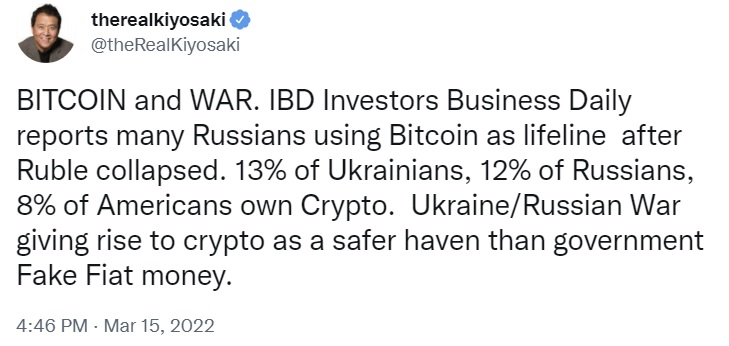
Kiyosaki also tweeted Monday that the Biden administration and the Federal Reserve “want inflation to pay off trillions in debt,” advising:
[The] best investment may be stocking products you will always use such as toilette paper, trash bags, canned goods, frozen foods, gold, silver, bitcoin.
He explained further in a different tweet about investing in oil. “I do not invest in oil companies such as Mobile or Exxon. I invest directly into oil wells. Higher risk for higher returns. Tax breaks fantastic. Two wells came in last week as oil went from $70 to $130. Rich get richer but poor suffer,” the famed author wrote.
Last week, Kiyosaki warned that “we are in the biggest bubble in world history” and that the U.S. government will seize all cryptocurrencies. He predicted that the government will regulate the crypto sector then launch a “Fed crypto.” Ultimately, Kiyosaki stated that all cryptocurrencies will be seized and folded into the government crypto.
His predictions were heavily criticized on social media, with many people telling him that not all cryptocurrencies can be seized. For example, decentralized cryptos, like bitcoin, cannot be seized within the network and the government will have a tough time going after self-custodied cryptocurrencies.
Kiyosaki Discusses the End of US Dollar
Kiyosaki also discussed the end of the U.S. dollar Tuesday. He noted that the U.S. hegemony is ending and the U.S. is becoming less of a world power.
As evidence, the Rich Dad Poor Dad author referenced the news of Saudi Arabia considering accepting Chinese yuan instead of U.S. dollars for Chinese oil sales.
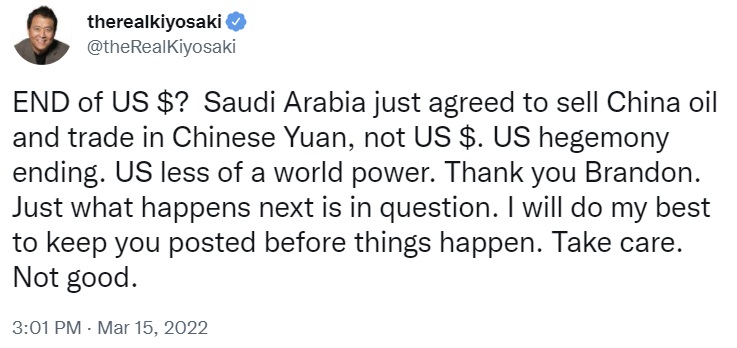
Several people have publicly spoken about the U.S. dollar losing its dominance since the war between Russia and Ukraine began, including veteran investor Jim Rogers who co-founded the Quantum Fund with billionaire investor George Soros. “What is happening with the U.S. dollar now is the end of the U.S. dollar because an international currency is supposed to be neutral but in Washington, they are now changing the rules,” Rogers explained.
What do you think about Robert Kiyosaki’s predictions? Let us know in the comments section below.
Image Credits: Shutterstock, Pixabay, Wiki Commons
Disclaimer: This article is for informational purposes only. It is not a direct offer or solicitation of an offer to buy or sell, or a recommendation or endorsement of any products, services, or companies. Bitcoin.com does not provide investment, tax, legal, or accounting advice. Neither the company nor the author is responsible, directly or indirectly, for any damage or loss caused or alleged to be caused by or in connection with the use of or reliance on any content, goods or services mentioned in this article.

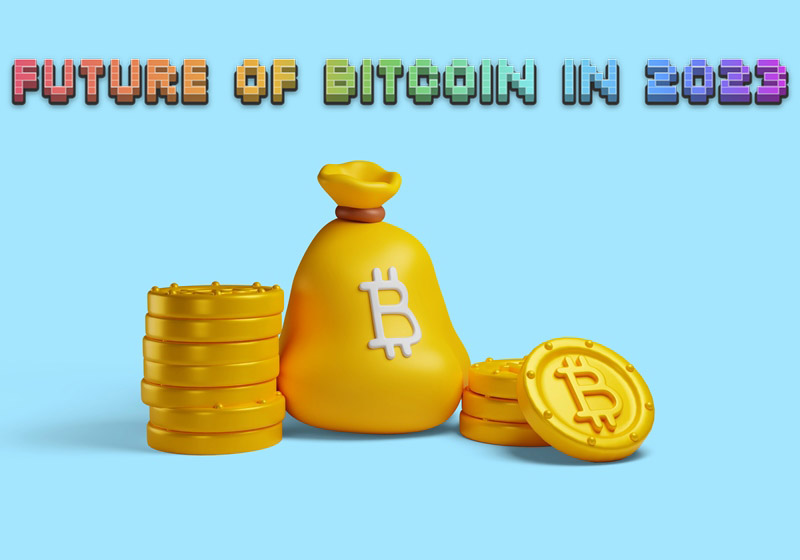
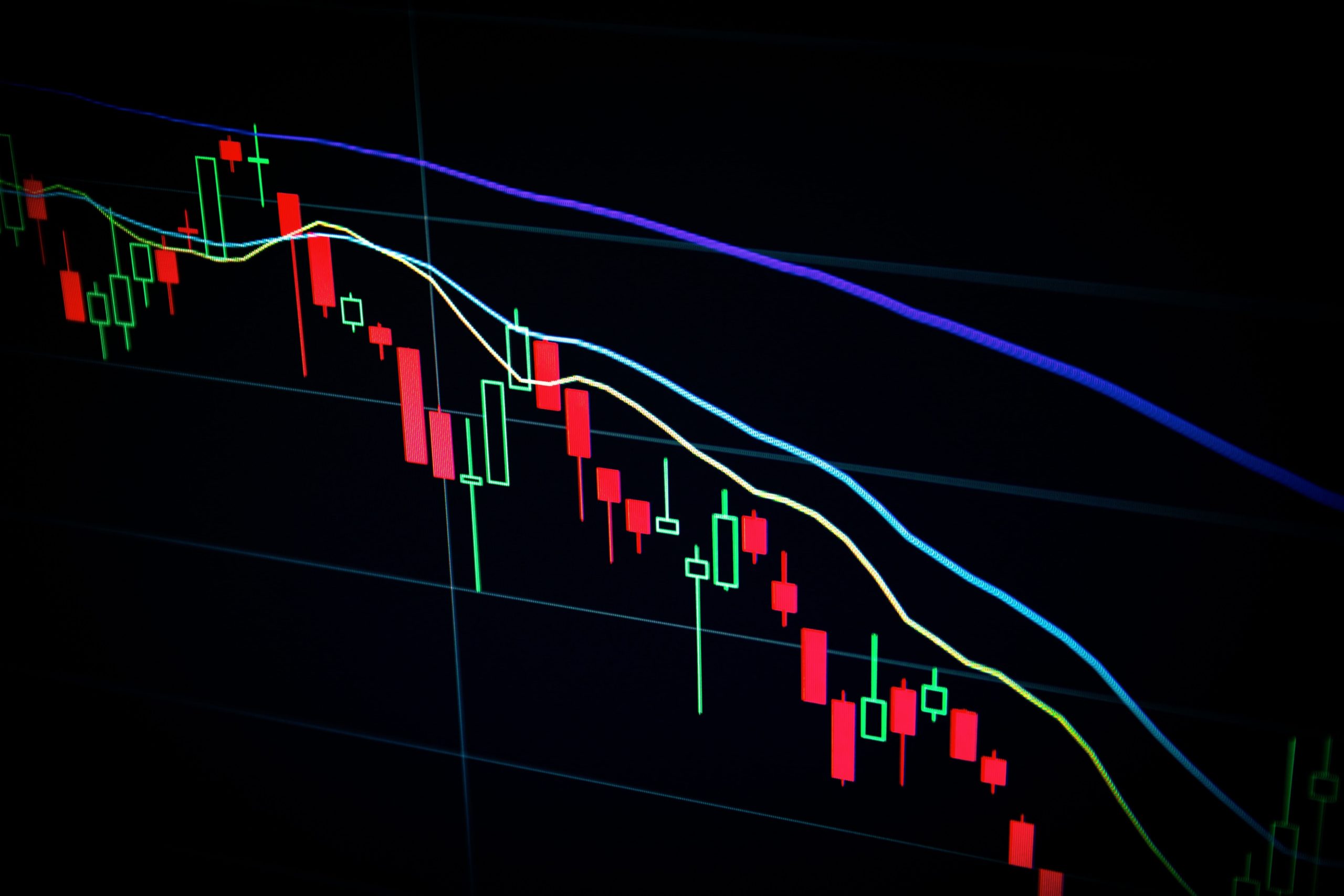
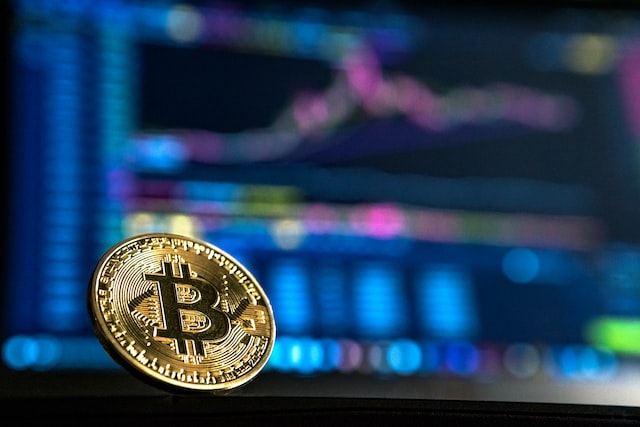








Post Comment